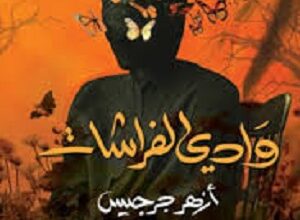Bomb attackers and home-grown takfiri extremists

Were the horrific attacks against Coptic churches in Egypt on April 9 unexpected? A video released by the Islamic State (ISIS) in Sinai had threatened to target Copts in major cities.
With jihadists roving through Egyptian prisons, radicalising and recruiting inmates, the question is why authorities could not have intercepted the terrorists before they struck.
On April 12, Egyptian security forces identified the suicide bombers responsible for the attacks against the churches. It appeared that they were home-grown takfiri extremists who espoused a rigorous religious dogma and were related by blood.
Copts for ages have been the target of terrorism. Today they are paying the price of decades of wrong decisions. The late Egyptian President Anwar Sadat released Muslim Brotherhood leaders from prison and coordinated with them to fight his Nasserist and leftist opponents. To that end, he spread the poisonous environment of the refusal of the other and opened the door wide for sectarian strife.
Sadat allowed the Muslim Brotherhood to infiltrate every city, village and street and expand its influence. While mosques had become focal points of dissent during the Mubarak era, today they have become incubators of incitement to intolerance and violence, encouraging an increase in religious bigotry, which feeds the terror against Christians.
We all know that religion and politics are a potent mix. Add to it poverty, joblessness, overcrowding and sectarian fanaticism and you get an explosion. Many of us blame the government for raising the spectre of conspiracies, which conveniently allows it to ignore the real issues of under-development, corruption, prejudice and bigotry.
Egyptian President Abdel Fattah al-Sisi has promoted tolerance towards Christians and asked al-Azhar, the highest authority in Sunni Islam, to fight the radical Islamist ideology by reforming religious discourse. The state, however, has never fought the Salafists, whose ideology is much more radical than the Muslim Brotherhood. It has even allowed them to have access to government-controlled media.
Although the Muslim Brotherhood movement has experienced a tangible decline in political significance, its networks and ideological ramifications are still factors in violence against the state and its people.
The emergence last summer of a new ISIS leadership, which has increasingly targeted Christians, is one of these ideological ramifications. ISIS claimed responsibility for the series of church attacks that started last December, its objective being to drive a wedge between Christians and Muslims as many Christians see Sisi as their defender and are among his staunchest supporters.
“ISIS hopes that inflaming sectarian strife in Egypt will be the first step in the country’s unravelling,” wrote Mokhtar Awad in the Atlantic on April 9, citing “deep-rooted sectarianism in Egypt” that analysts say “has been fanned by Islamist extremists for decades and to which government policies have also contributed.”
“Sectarianism,” Awad wrote, “would not have worked so well for ISIS in Egypt… had the group not found an ideological context where its radical ideas could thrive.”
Terrorism cannot be fought solely through security measures. This is why many have urged the government and al-Azhar to revise school texts that are replete with incitement to hatred and violence against “infidels” (the Coptic Christians in this case).
Sisi declared a 3-month state of emergency in Egypt after the attack, widely seen as a measure that will increase the powers of security forces. Many Egyptians hope that the creation of the counterterrorism council will focus more on the eradication of radical thought.
In Egypt, there is a plethora of security measures but there is no rational policy for combating the ideological roots of terrorism. This would demand using the tools of civil society and hard power to fight terrorism. We do not have to pick one over the other.
I am humbled by the courage and resilience the Copts have shown in the face of adversity and by their unwavering resolve not to allow terrorism to break their social cohesiveness, which would be the biggest triumph for the Islamists and for all those who have heavily financed the terrorists.
The terrorists hope that Egypt will suffer the same fate as Syria, Libya and Yemen. Solidarity between Christians and Muslims was evident when people rushed to give blood to save the injured in the church attacks, proof of what a great people Egyptians are during times of crises.
* Mona Makram-Ebeid is a distinguished political science lecturer at the American University in Cairo.
The Arab Weekly




